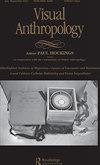How Does an Image Relate to What It Shows?—The Uses of Photography among the Badagas of South India
IF 0.3
Q3 ANTHROPOLOGY
引用次数: 0
Abstract
“ How does a photograph relate to what it shows? ” This is a central conundrum of photography and is debated in academic journals as well as across the coffee-table. We find the two kinds of partial answer at the end-points of a long continuum. On the one side, the first approach, it is claimed that photography is like a fingerprint or a face mask, an unbiased copy of a (visual) impression, and what we see has actually happened. Thus two aircraft flew into the Twin Towers (in 2001), the cruiser Costa Concordia was shipwrecked (in 2012), and Donald Trump met Kim Jong Un (in 2018). On the other hand, a second approach rejects this view: photographs are not documents but commentaries; they do not reflect but construct the world, because they show just one moment and from one perspective; they can be modified in the post-production, and themselves become objects of subjective reading. Each view on this particular relationship of the picture and the depicted cannot ignore the other side. first counts. paradox dialectics is that eye图像与所显示的内容有何关系--摄影在南印度巴达加斯人中的应用
“一张照片和它所展示的东西有什么关系?”这是摄影的核心难题,无论是在学术期刊上还是在咖啡桌上,人们都在讨论这个问题。我们在长连续体的端点处找到了两种部分答案。一方面,第一种方法,它声称摄影就像指纹或面具,是(视觉)印象的无偏拷贝,我们所看到的是真实发生过的。因此,2001年有两架飞机撞进双子塔,2012年歌诗达协和号巡洋舰失事,2018年唐纳德·特朗普会见了金正恩。另一方面,第二种方法反对这种观点:照片不是文件,而是评论;它们不是反映世界,而是构建世界,因为它们只展示一个时刻,从一个角度;它们可以在后期制作中被修改,自身也成为主观阅读的对象。关于这幅画和被描绘物的特殊关系的每一种观点都不能忽视另一方面。第一次计数。悖论就是辩证法的那只眼睛
本文章由计算机程序翻译,如有差异,请以英文原文为准。
求助全文
约1分钟内获得全文
求助全文
来源期刊

Visual Anthropology
ANTHROPOLOGY-
CiteScore
1.00
自引率
50.00%
发文量
19
期刊介绍:
Visual Anthropology is a scholarly journal presenting original articles, commentary, discussions, film reviews, and book reviews on anthropological and ethnographic topics. The journal focuses on the study of human behavior through visual means. Experts in the field also examine visual symbolic forms from a cultural-historical framework and provide a cross-cultural study of art and artifacts. Visual Anthropology also promotes the study, use, and production of anthropological and ethnographic films, videos, and photographs for research and teaching.
 求助内容:
求助内容: 应助结果提醒方式:
应助结果提醒方式:


